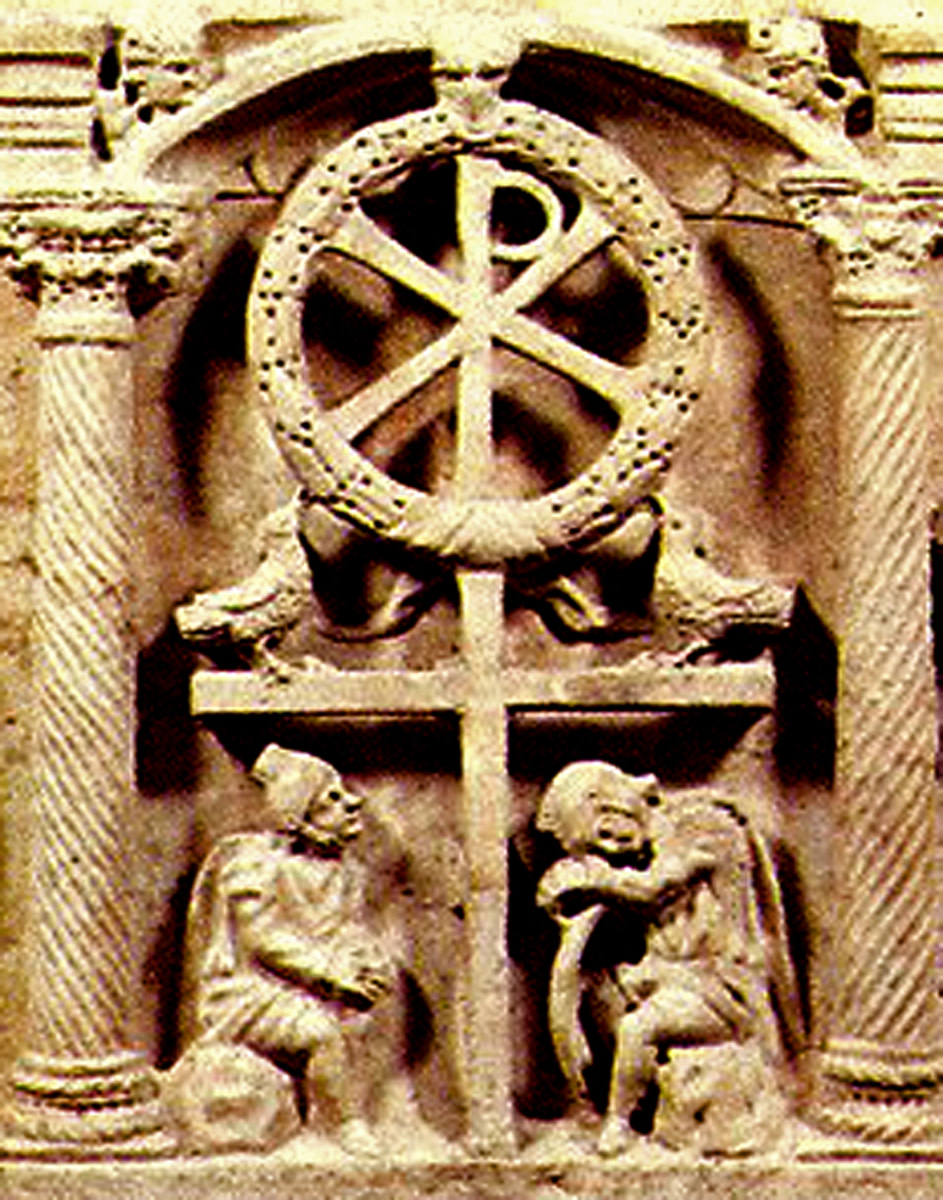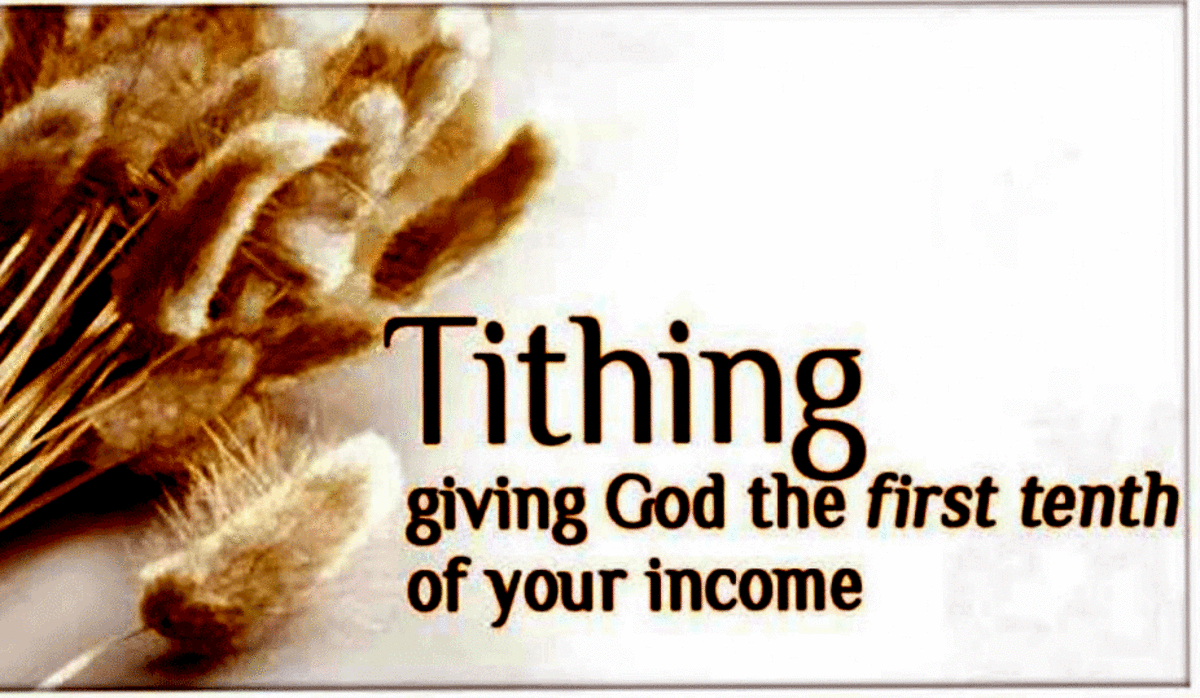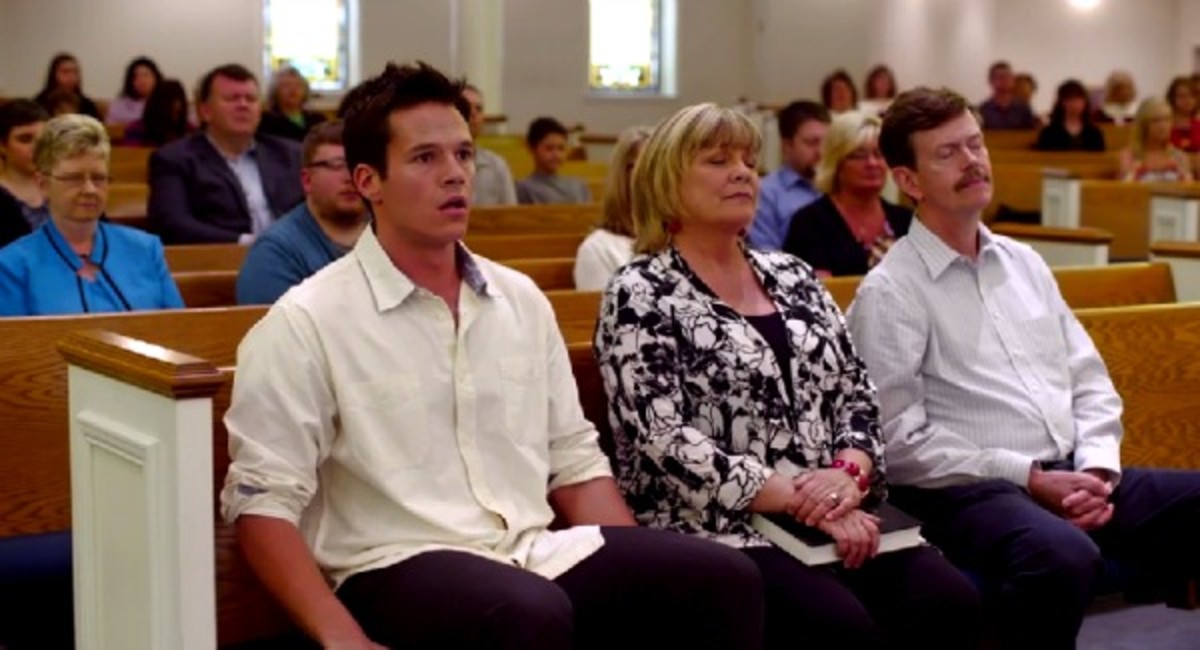The Truth About the Ten Commandments: What Changed and Why It Matters
Sometimes, the most important truths are the ones hiding in plain sight. You might think the Ten Commandments are a settled list; clear, unchanging, and accepted by all Christians. But when you take a closer look, especially when comparing the Bible’s version to what’s taught in the Catholic catechism, you begin to notice something... doesn’t quite add up.
This article isn’t about throwing stones or stirring division. It’s about looking at what God actually said and asking a simple but honest question: Did someone change His words?
We’re not dealing with small differences. We’re talking about direct changes to God’s commandments; the very words He wrote with His own finger on tablets of stone. And once we notice the changes, we have to ask the next question: Who made these changes, and why?
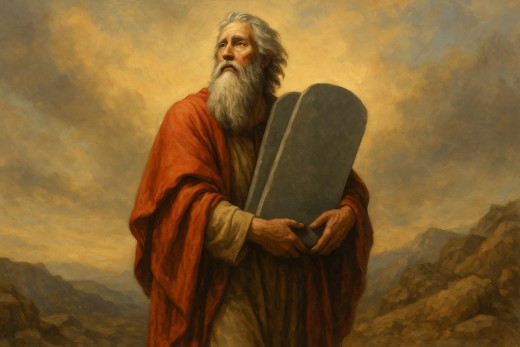
This isn’t about hating Catholics. Let’s be clear. There are sincere, beautiful people in every church. But sincerity doesn’t equal truth. Jesus said, “And ye shall know the truth, and the truth shall make you free.” Truth matters. And when something as serious as God’s commandments are edited, rearranged, or deleted, we can’t just look the other way.
This isn’t a history lecture. It’s personal. Because the God who gave the commandments still expects us to keep them and to teach them exactly as He gave them.
So, let’s take a walk through the commandments, side by side: God’s original version in the Bible, and the modified version found in the Catholic catechism. Let’s unpack what was changed, what was removed, and what it reveals.
The goal isn’t to shame anyone. It’s to shine a light. Because God still has “other sheep,” as Jesus said; people in every denomination who love Him, but may not know these things yet. If that’s you, or someone you know, then this message is for you.
Let’s begin.
What Did God Really Say? The Bible’s Ten Commandments
Let’s go back to the source: Exodus 20. That’s where God Himself gives the Ten Commandments. Not to Moses’ imagination. Not to a prophet’s interpretation. These words came directly from God, written on stone by His own hand. No room for confusion.
And here’s what they say:
#1. Thou shalt have no other gods before me.
This isn’t just about having statues or idols. It’s about loyalty. God wants to be first; not shared, not replaced. He’s a personal God, not one among many.
#2. Thou shalt not make unto thee any graven image.
God is Spirit. He doesn’t want us to bow to images, whether of Him, saints, angels, or anything else. This isn’t symbolic; it’s clear. Don’t make them and don’t bow to them.
#3. Thou shalt not take the name of the Lord thy God in vain.
It’s not just about cursing. It’s about treating God’s name with the seriousness it deserves. Using it carelessly or claiming His authority without respect is dangerous.
#4. Remember the Sabbath day, to keep it holy.
Six days to work. One day to rest. Not just any day; the seventh day. God blessed the Sabbath, sanctified it, and asked us to keep it holy. Not to earn salvation, but as a sign of our relationship with Him.
#5. Honor thy father and thy mother.
Respect for parents builds the foundation of a stable life. It reflects how we honor God too. There's a promise tied to it: long life.
#6. Thou shalt not kill.
Life is sacred. Every person is made in the image of God. Taking innocent life violates His character.
#7. Thou shalt not commit adultery.
Marriage is holy. God calls us to purity, loyalty, and self-control. This command protects families and hearts.
#8. Thou shalt not steal.
It’s not just about breaking into someone’s house. It’s about honesty in all things; work, money, time, trust.
#9. Thou shalt not bear false witness.
Lies destroy lives. Truth builds them. God is truth, and He calls us to reflect that in our words.
#10. Thou shalt not covet.
This one speaks to the heart. It’s not about action; it’s about desire. Wanting what someone else has leads to all kinds of sin. God calls us to contentment and gratitude.
Now pause and think. These commandments cover every area of life; worship, speech, time, family, life, loyalty, property, truth, and thought. They show us how to love God and how to love others.
So why would anyone want to change this list?
That’s what we’re about to look at next. When we compare this with the version taught in the Catholic catechism, we’ll start to see the changes. Not by accident. Not by mistake. But with intention.
And the truth is, once you change God’s law, you’re not just adjusting doctrine; you’re challenging His authority.
What Changed in the Catholic Catechism and Why It Matters
Now let’s put the Catholic version of the Ten Commandments next to the biblical one. At first glance, it might seem mostly the same. But look closer. Something is missing. Something’s been moved. And something’s been split in two to cover up what was taken out.
Here’s how the Catholic catechism presents the commandments:
#1. I am the Lord your God; you shall not have other gods before me.
So far, so good.
#2. You shall not take the name of the Lord your God in vain.
Wait! What happened to the commandment about graven images? It’s gone.
#3. Remember to keep holy the Lord’s Day.
This sounds familiar, but the Bible clearly says the Sabbath is the seventh day; Saturday and not Sunday. The catechism rewords it and applies it to Sunday instead.
From there, everything shifts:
#4. Honor your father and your mother.
In the Bible, this is the fifth commandment. But here, it’s listed as number four. Why? Because removing the second commandment (about images) shifts everything up.
And to keep the total at ten, they split the last commandment:
#9. You shall not covet your neighbor’s wife.
#10. You shall not covet your neighbor’s goods.
At first, this might seem like a minor reshuffle. But think deeper. Removing the second commandment erases God’s clear instruction not to use images in worship. In a church filled with statues, relics, and paintings of saints and Mary, this deletion feels more like a choice than an oversight.
Furthermore, changing the Sabbath from Saturday to Sunday shifts obedience away from God’s command and places it under church authority. And splitting the tenth commandment into two smaller ones isn’t just creative; it’s misleading. If we followed that logic, then “do not covet” could be five different commandments instead of one.
So, what does this all mean? It means that someone changed God’s law. Not in a small way. Not in an innocent way. But in a way that directly alters how people relate to God and worship Him.
And yes, many sincere people follow the catechism without knowing any of this. That’s not their fault. But the moment we see it, the burden is on us to decide: Do we follow tradition or God’s original word?
You might wonder, “Why would a church do this?” That question is worth exploring. But before we go there, we need to recognize what’s really happening here.
When anyone edits God’s commandments, they’re claiming authority over Him. That’s not small. That’s spiritual danger. And that’s what the Bible warned us about; long before this ever happened.
We’ll look at that next.
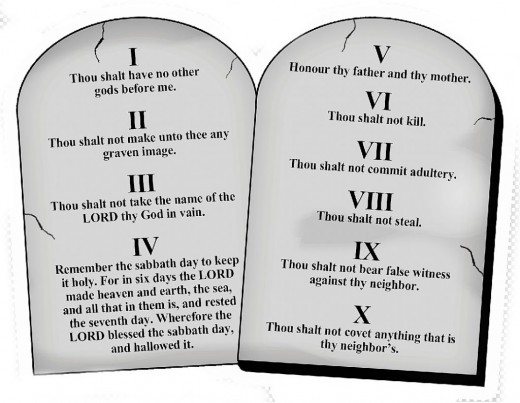
The Bible Warned Us: A Power That Would “Think to Change Times and Laws”
Long before church traditions shifted, the Bible gave us a clear warning. Not from rumor. Not from hearsay. Straight from prophecy.
In Daniel 7:25, speaking of a little horn power that would rise out of Rome, the Bible says:
“And he shall speak great words against the most High, and shall wear out the saints of the most High, and think to change times and laws…”
Pause there. This isn’t a small description. It’s a direct prophecy.
Who else fits this?
Let’s walk through it slowly:
- This power comes after Rome.
- It’s religious, not just political.
- It speaks against God, claiming authority that belongs to God alone.
- It persecutes believers, especially those who stand by the truth.
- And it tries to change God's law, especially the parts related to time and worship.
Which of God’s commandments deal with time? Only one. The Sabbath commandment.
That’s the commandment that says, “Remember the Sabbath day, to keep it holy... the seventh day is the Sabbath of the Lord thy God.” (Exodus 20:8–10)
Now compare that with what the Catholic Church has done. The Sabbath has been moved from Saturday to Sunday without any scriptural backing. There’s not a single verse in the Bible where God or Jesus or the apostles changed the Sabbath to Sunday.
Instead, we find Church documents that openly admit the change came through Church authority, not Scripture. In fact, during the Council of Laodicea in 364 A.D., Canon 29 declared:
“Christians shall not Judaize by resting on the Sabbath, but must work on that day, rather honoring the Lord's Day. But if any shall be found to be Judaizers, let them be anathema from Christ.”
In plain terms: rest on Sunday, not Saturday. And if you rest on Saturday, you’re condemned. That’s not a suggestion. That’s an enforcement of man-made authority over God’s command.
Let’s be honest; what does it mean to change a law? It means someone believes they have the power to override the original.
But who gave that power?
Jesus didn’t. The apostles didn’t. The early Christians didn’t. This came from a religious system that believed it had the right to modify God’s word.
And what did Revelation say?
“All the world wondered after the beast.” (Revelation 13:3)
A global system. Full of religious influence. Admired. Powerful. And misleading.
Again, this isn’t about attacking Catholics. Many are sincere. Many love God. But the system; the structure, is doing exactly what prophecy warned about. Changing God’s law. Claiming divine authority. Replacing biblical truth with tradition.
Now ask yourself: if God gave the Sabbath as a sign between Him and His people (Ezekiel 20:12), and someone changes that sign, who are they really following?
This is more than a day. It’s a test of loyalty.
So, what should you do if you’ve been following tradition, thinking it was truth?
That’s what we’ll explore next. Because the call isn’t just to notice. It’s to act.
The Call to Come Out: God Still Has People Inside
God isn’t out to condemn. He’s out to save. And even in systems that have drifted far from His word, He still has faithful, sincere people.
Jesus said in John 10:16,
“And other sheep I have, which are not of this fold: them also I must bring... and there shall be one fold, and one shepherd.”
That’s powerful. God knows His people. Even if they’re in the wrong place right now. Even if they’ve grown up trusting traditions that don’t line up with Scripture. He doesn’t abandon them; He calls them out.
In Revelation 18:4, the voice from heaven cries out:
“Come out of her, my people…”
That’s not a cry of anger. It’s a cry of love. God says, My people. He doesn’t say those people or the lost ones. He still claims them as His own.
So, who or what is “her”?
Revelation 17 describes a woman (symbolic of a church), sitting on a beast, decked with gold, precious stones, and pearls. She has a golden cup in her hand full of abominations. She’s called “Babylon the Great, the Mother of Harlots.”
And she has daughters. Churches that follow her practices. Especially the one at the center: changing God’s law, enforcing man-made worship, and replacing truth with tradition.
This isn’t about guessing. The Bible paints a clear picture. The beast. The woman. The little horn. All point to the same power. A system that has altered God's commandments, set itself up as a spiritual authority, and drawn the whole world to follow; often without knowing it.
But God is calling people out of that. Not with harshness. Not with shame. But with truth. He wants people to worship Him in spirit and in truth; not out of fear or habit, but from love and conviction.
If you’ve been in that system, or influenced by it, this isn’t a personal attack. It’s an invitation.
- To open your Bible.
- To compare what’s written with what’s taught.
- To pray honestly: “Lord, show me what’s real.”
Because once you see the difference, the next step isn’t about debate, it’s about decision. Who will you follow? Man’s word or God’s Word?
And yes, it might cost something. Comfort. Community. Familiarity. But truth is worth it. God’s presence is worth it. Eternal life is worth it.
The Bible says Jesus “by Himself purged our sins” (Hebrews 1:3). No assistant. No co-savior. No detour through Mary or saints. It’s Him alone.
He’s calling. Are you listening?
Let’s wrap this up with one final thought.
Conclusion: God’s Word or Man’s Word? You Choose
This isn’t just about commandments on stone. It’s about who has the final word in your life: God or man.
We’ve looked closely at how the Ten Commandments were changed in the Catholic catechism. One was removed. One was shifted. One was split. That’s not a small matter. It’s the difference between truth and tradition, obedience and assumption.
God never authorized anyone to rewrite His law. Not a church, not a council, not a pope. He wrote it with His own finger. He spoke it with His own voice. And He asks us to follow it with our whole heart.
Yes, the world has gone a different direction. Yes, most churches now keep Sunday instead of the Sabbath. But remember, majority has never meant truth. In Noah’s day, only eight were on the ark. In Daniel’s day, only three stood when everyone bowed.
Today, the same test is before us. God’s commandments or man’s replacements? And you might be wondering, “What do I do now?”
Start by reading the Bible for yourself. Especially Exodus 20. Ask honest questions. Pray for wisdom. Don’t settle for answers that begin with, “Well, the church says…” Then, take a step. Whatever God shows you; follow it.
Yes, it might feel uncomfortable. You might feel alone. But you’re not. God walks with those who choose truth, even when it’s hard. And He promises blessing to those who keep His commandments, not as a means to earn salvation, but as a sign that we love and trust Him.
Jesus said in John 14:15:
“If ye love me, keep my commandments.” –
That’s the heart of it.
This isn’t about proving a point. It’s about being ready when Jesus returns. He’s coming back for a people who “keep the commandments of God and have the faith of Jesus” (Revelation 14:12).
Be part of that people. Choose the Bible over tradition. Choose truth over comfort. Choose Jesus; fully, completely, and with nothing held back.
He’s waiting!
This content is accurate and true to the best of the author’s knowledge and is not meant to substitute for formal and individualized advice from a qualified professional.
© 2025 Ronald Daniel Sampson

